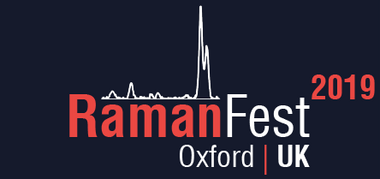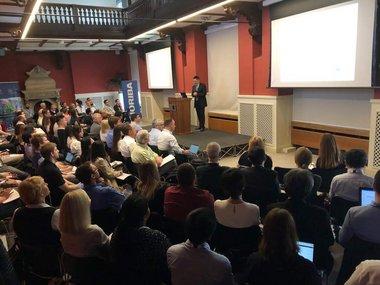HORIBA announces the successful organisation of RamanFest 2019. The 7th International Conference on Advanced Applied Raman Spectroscopy took place on 24th -25th June, at the historic Oxford Martin School, in Oxford, UK. Prof. Wei Huang (Department of Engineering Science, University of Oxford), a pioneer in the use of single-cell Raman spectroscopy, was the academic host. The conference was opened by Prof Patrick Grant (Pro-Vice-Chancellor (Research) of University of Oxford) and attracted top scientists in the field of Raman spectroscopy and its application to materials, engineering, chemistry, biology and medicine.
The conference focused on two main themes and stimulated active discussion among the delegates. The first theme focused on health and life sciences, showcasing talks on micro-biology and methods for single cell analysis, SERS methodologies, tissue imaging, disease diagnostics, pharmaceutical characterisation, and micro-plastics and their environmental effect. During the second theme, the speakers presented studies of advanced materials and advanced analytical techniques, including carbon materials (e.g., graphene, nanotubes, boron-doped diamond), catalysis, novel 2D materials, and the application of TERS (tip enhanced Raman spectroscopy).
Professor Wei Huang, the hosting academic, said: “RamanFest has always focused on presenting cutting-edge world-leading science, and both the quality and variety of lectures this year testify to this. I was pleased to have attended the very first RamanFest conference back in 2013, so it was a great honour to host RamanFest 2019 in Oxford this year, and to welcome such an international gathering of leading minds in Raman spectroscopy.”
HORIBA’s local organiser, Dr Simon FitzGerald, commented: “The conference was particularly important to HORIBA this year, since in 2019 we celebrate 200 years of spectroscopy through the Jobin Yvon brand. What better way to celebrate that unique history than with a conference like this?”
A poster session ran throughout the two-day conference, where delegates had the opportunity to present and discuss their work with Raman experts from across the globe. Kang Soo Lee (a post-doctoral researcher at ETH Zürich, Switzerland) was awarded the poster prize for his work on “Direct Measurement using Raman Microspectroscopy of the Phycosphere Formed by Phytoplankton”, which outlined the use of Raman and optical tweezing to investigate algae-bacteria interactions. The judging panel members were unanimous in their decision, citing Dr Lee’s exceptional science, clear presentation, and engaging communication.
A Gala Dinner was hosted at the prestigious Oxford Town Hall, where Dr Lucia Burgio, from the Victoria and Albert Museum, London, shared her experience about “A day in the Life of a Museum Ramanist.”
The next RamanFest will be held at the University of California, Irvine, USA. If you wish to receive information about RamanFest 2020, please click here.

